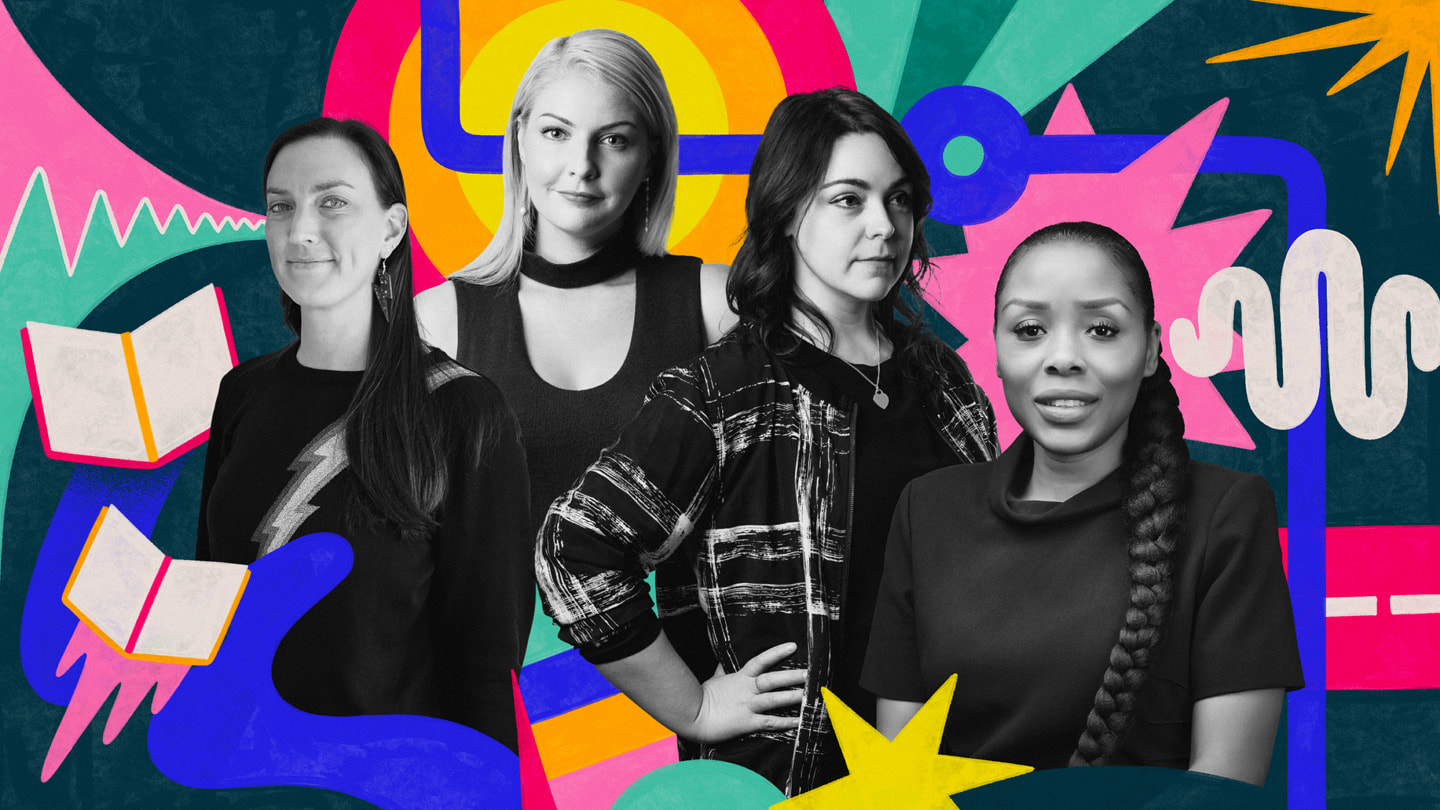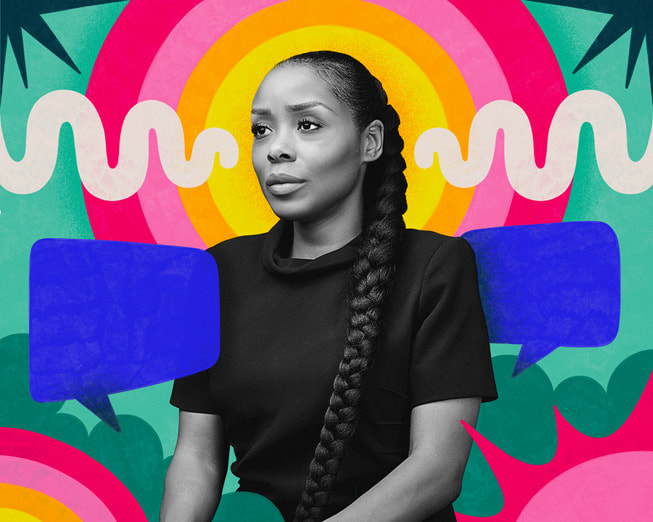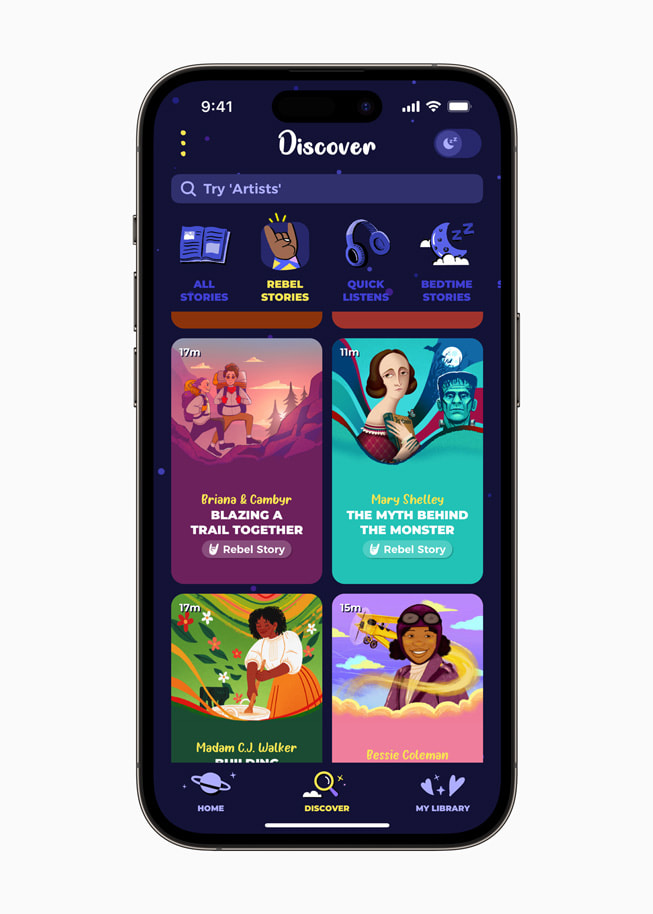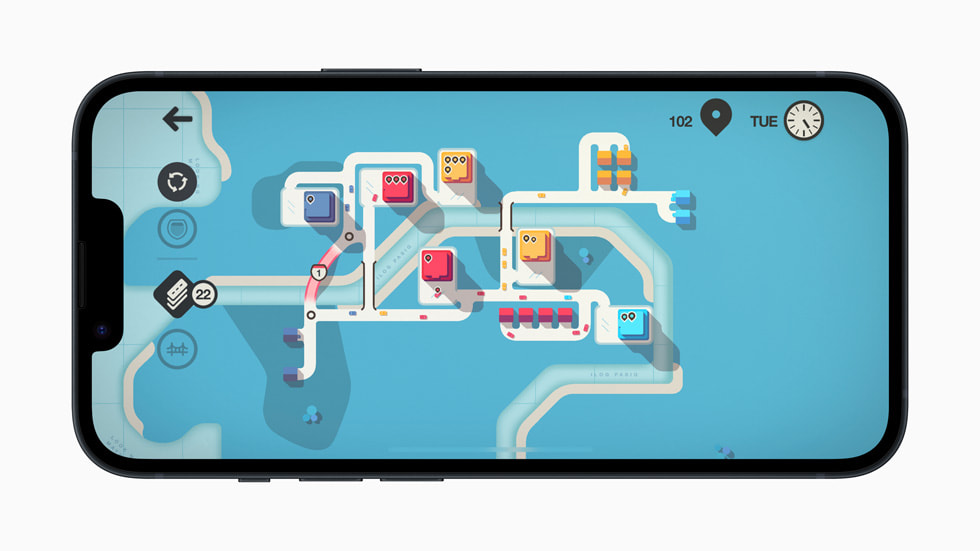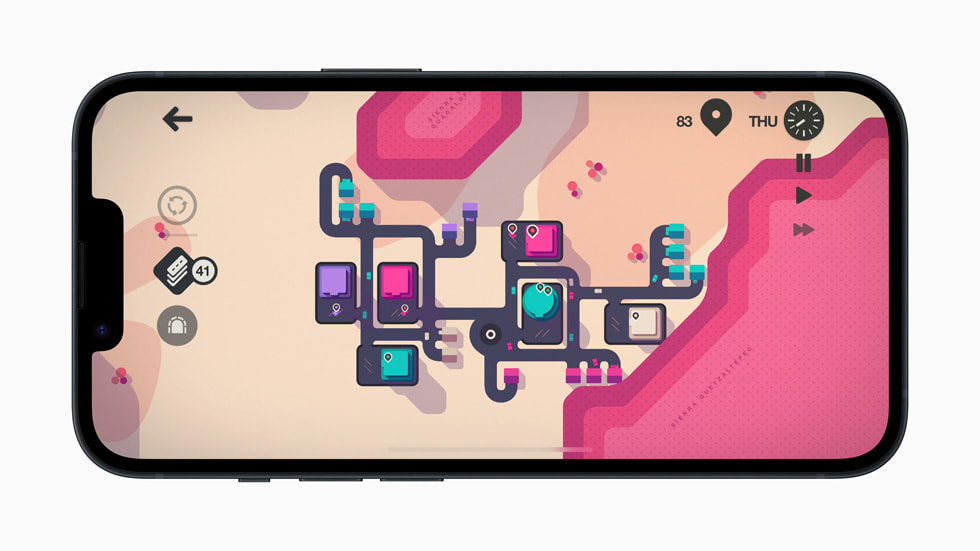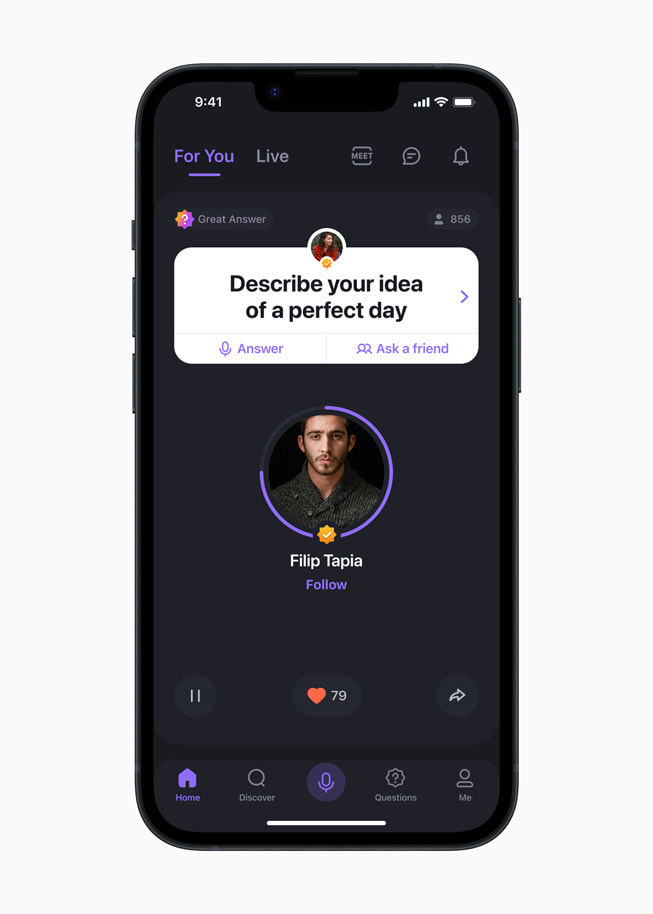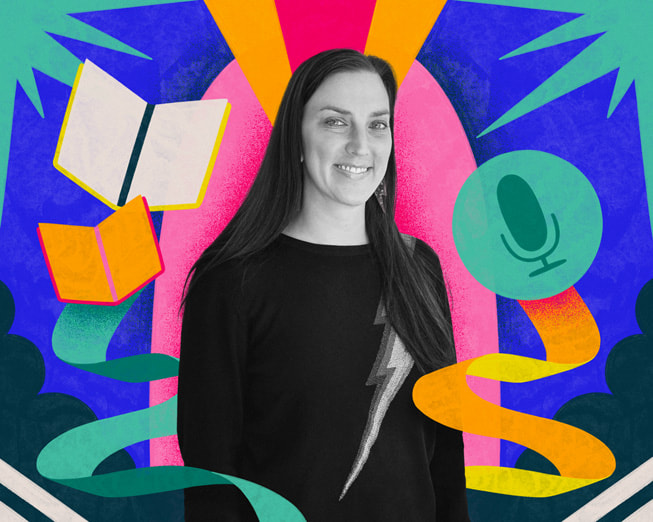apple stories
Meet four women using apps and games to drive culture and create change
The teams at Rebel Girls, Dinosaur Polo Club, and Wisdom share how their experiences shaped the vision for their apps and games on the App Store
Every day on the App Store, entrepreneurs behind best-in-class apps and games are harnessing the power and accessibility of technology to create change and drive culture. And for the creators of Mini Motorways, Rebel Girls, and Wisdom, there’s so much more to app development than the end product — these women-led teams are amplifying women’s voices, and leading the charge for the next generation of women and girls looking to cultivate a career in technology.
After attending Stanford Graduate School of Business where she studied the stories behind the world’s greatest tech companies, Jes Wolfe knew she wanted to pursue a career in the industry. Today, she serves as the CEO of Rebel Girls, a global media brand that empowers girls through the stories of pioneering women. Through the company’s app — a winner of Apple’s 2022 Design Awards — as well as its podcast and books, the company aims to inspire young women to dream big.
In their leadership roles at New Zealand-based game development studio Dinosaur Polo Club, Niamh Fitzgerald and Chantelle Cole set out to build a more inclusive workplace, fostering an environment where everyone can flourish and feel valued. Designed by a diverse development team, their titles like the Apple Arcade hit Mini Motorways encourage users to take a closer look at the world around them and problem-solve in creative and unusual ways.
Dayo Akinrinade, a participant in Apple’s 2022 Entrepreneur Camp for Black Founders, felt underrepresented and underestimated in the world of computer science after graduating from the University of Manchester — so she built her own community designed to prioritize and amplify women’s voices. Her audio-first social discovery app, Wisdom, connects like-minded users for deep conversations on far-ranging topics like careers, relationships, and fitness.
Below, Wolfe, Fitzgerald, Cole, and Akinrinade share how they use technology to uplift women and create social change.
What kinds of challenges do you address with your company and its products?
Jes Wolfe (JW), CEO of Rebel Girls: We see a confidence gap between genders starting at age 6. That’s when girls start to think they are less smart and less capable than boys, according to a study published by Science. The study says career aspirations are shaped by gender stereotypes. Additionally, between the ages of 8 and 14, girls’ confidence falls by 30 percent. We want every girl to open the Rebel Girls app — or any of our books — and find dozens of stories of role models that she can see herself in.
Dayo Akinrinade (DA), founder of Wisdom: My aim for Wisdom is to replace the inequity of closed networks with an open, diverse community of experts and helpful people. Wisdom offers women a safe space to converse about topics that matter to them, such as women’s rights, domestic violence, leadership, and wellness. Our users who don’t identify as women consider themselves allies, and provide support by participating in the conversations or simply listening.
Niamh Fitzgerald (NF), chief operating officer of Dinosaur Polo Club: Many women face issues such as pay and gender equality, barriers to leadership, and inflexible work hours. But we believe that creating a work environment that is inclusive and supportive for everyone — regardless of their gender or sexuality — is fundamental to creating a sustainable and thriving business. Advocating for diversity and inclusion is at the heart of everything we do, but we hope that one day we’ll reach a point where this is commonplace in every business.
How have you seen your user community benefit from your product?
Chantelle Cole (CC), CEO of Dinosaur Polo Club: Initially, we set out to make something that would connect with people who held an appreciation for real-world systems — something that might encourage them to look at the world around them with fresh eyes and perhaps seek more elegant solutions to everyday problems. We never anticipated the way our games have become a positive and meaningful part of people’s lives.
JW: We develop all our content and our app for 4- to 12-year-old girls. Our storytelling empowers and inspires them, and helps them build their confidence, and we do it in a way that the whole family can enjoy. Eighty-six percent of parents tell us their girls’ confidence has increased because of Rebel Girls, and 92 percent of parents tell us our stories inspired their girls.
How have your experiences influenced how you’ve created your app and how you run your business?
CC: My experiences working across creative industries — including music and printing — began to shape who I wanted to be as a leader. I wanted to take the best parts of [people] who had inspired me through their values-based and selfless leadership, and create a culture that fosters mental well-being, values diversity, and directly addresses inequity.
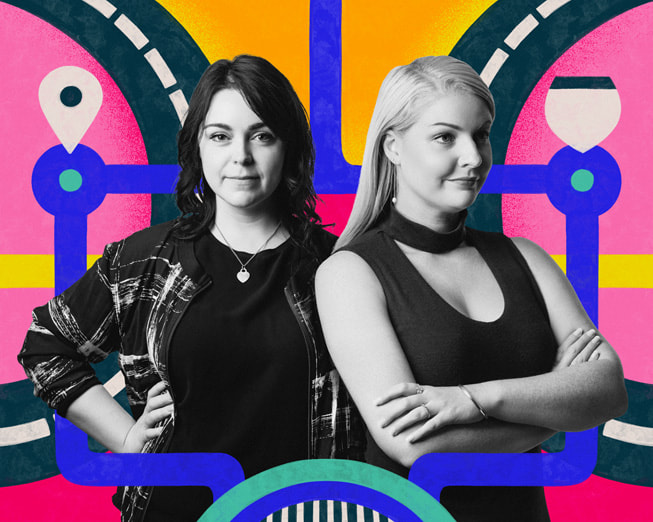
Dinosaur Polo Club chief operating officer Niamh Fitzgerald and CEO Chantelle Cole are part of the team behind the hit Apple Arcade game Mini Motorways. “We like to call our community of players City Planners or Civil Engineers, which, in real life, is a field dominated by men,” Fitzgerald says. “For young girls, picking up a game that was intentionally designed for all ages and genders might open up the idea to them that urban design and high-level strategy are things they can find a passion for.”
DA: In my time working with minority founders, I witnessed how a lack of social capital contributes to systemic inequity and disadvantages founders from minority groups, hence the inspiration for Wisdom. We’re growing an open and diverse community where the conversations center on advice and personal development.
JW: Early in my career, I read Carly Fiorina’s memoir, Tough Choices, and gobbled up each page. As one of the first books I’d read about a female CEO, it inspired me. My favorite question to ask people is, “Who is a woman who inspires you?” It’s disappointing how few people can answer that question. Women are still fighting to tell their stories, and to have them told authentically. This is why we tell the stories of women representing 400+ professions and from 100+ countries; we work with hundreds of female and nonbinary writers, illustrators, editors, and narrators to tell these stories authentically.
What features in your app did you design to uplift and empower girls or women?
NF: We like to call our community of players City Planners or Civil Engineers, which, in real life, is a field dominated by men. For young girls, picking up a game that was intentionally designed for all ages and genders might open up the idea to them that urban design and high-level strategy are things they can find a passion for. It’s important to us as a studio that our games feel approachable and welcoming for all demographics, so if they can be confidence-inspiring for a young woman, that’s a success!
JW: Confidence is the biggest predictor of a child’s future success, and girls have less of it than boys do. Media plays a big role, and Rebel Girls is leading to change the narrative and tone. We have a content ecosystem where girls are portrayed in realistic situations where they are winning, surrounded by a supportive community and friends, and not confronted by gendered language.
DA: Wisdom is a place to ask questions and learn from extraordinary women from different walks of life — women you would ordinarily never have the chance to meet. Any woman can start a talk or engage in Q&A on a topic that matters to them, and it’s free. This is by design, so that everyone can have a voice. We also considered safety from the start: We intentionally add friction to the signup process, have 24/7 moderators, and make it easy to report a piece of content. We leverage AI to algorithmically score our user-generated content to reduce the probability of posting harmful content.
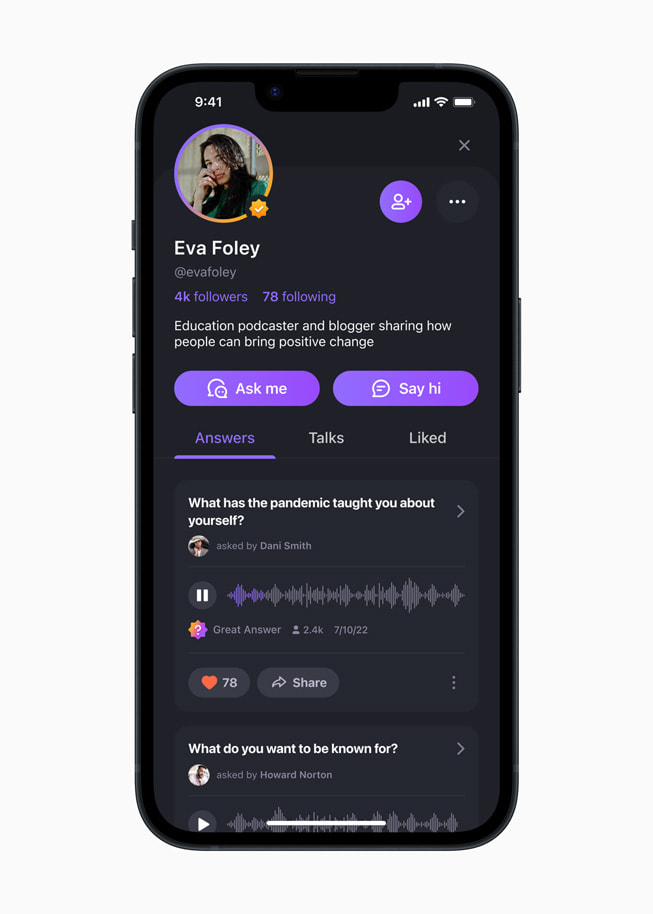
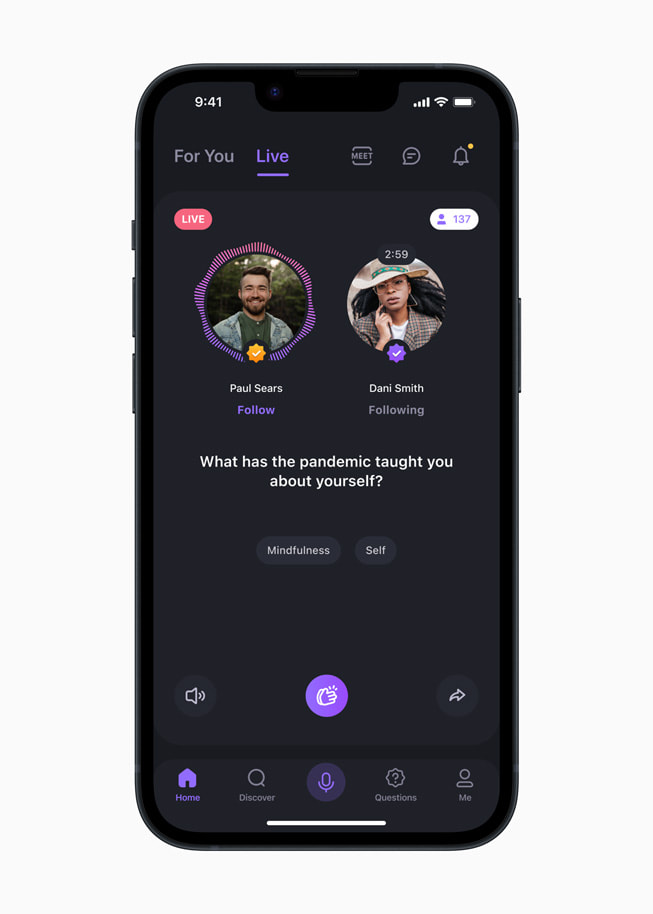
What do you hope for the next generation of women technologists?
DA: I hope the next generation of women technologists are able to show up as their authentic selves and thrive in a technology field that accommodates for a variety of diverse leadership styles. After all, leadership is not one size fits all.
JW: Female founders secured 2 percent of venture capital in the U.S. in 2022. I want to see women founders, creators, and developers seeing at least 50 percent of venture funding to make their products, impact societies, create jobs, and build the future.
NF: My hope for the next generation of women is that a focus on gender diversity and inclusion becomes a natural part of how every company does business, not something that sets it apart. So many areas of our lives involve some aspect of technology, and it just makes sense to have a wide range of people and perspectives involved when we’re innovating towards a future that works for everyone.
Share article
Media
-
Text of this article
-
Images in this article
